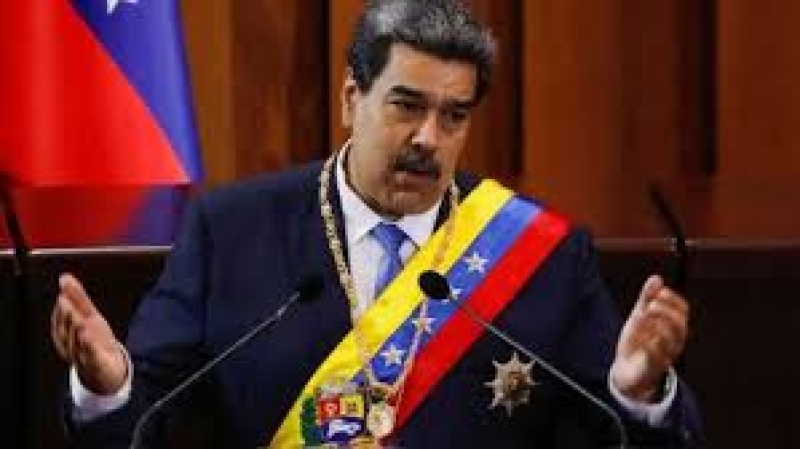- Turk warns DR Congo crisis may worsen, without inte’l action |
- Govt working with security forces to keep law, order: Prof Yunus |
- Vandalism across Bangladesh to be resisted: Govt |
- Vandalism at Dhanmondi-32 hould strongly be condemned: Delhi |
- Hasina’s provocative remarks fueled Dhanmondi-32 attack: Govt |
Venezuela Restricts Diplomats from France, Italy, Netherlands

Venezuela announced on Tuesday it would reduce the number of accredited diplomats at the French, Italian, and Dutch embassies, accusing their governments of "hostile" reactions to President Nicolás Maduro's third-term inauguration. The foreign ministry stated that each country would be limited to three diplomats, who would also need written permission to travel beyond 40 kilometers from Caracas' Plaza Bolívar.
Maduro, 62, is facing international criticism over his disputed reelection in July, which many claim was rigged. The United States, European Union, G7, and several Latin American countries have refused to recognize his victory, with France, Italy, and the Netherlands particularly vocal in their condemnation of the regime.
Venezuelan Foreign Minister Yvan Gil, speaking on Telegram, accused these governments of supporting "extremist groups" and interfering in Venezuela’s internal affairs. He demanded they reduce their diplomatic staff within 48 hours.
The travel restrictions apply to the capital city and its surroundings, as the country's international airport, Simon Bolivar, is just 23 kilometers from Plaza Bolívar.
This move highlights Maduro's growing isolation. Only two regional leaders—Cuban President Miguel Díaz-Canel and Nicaraguan President Daniel Ortega—attended his inauguration, while Russia's Vladimir Putin and China's Xi Jinping sent messages of support. Meanwhile, Western nations and many Latin American countries have imposed sanctions on his government, citing the election as a "coup."
Critics have denounced the regime's ongoing repression, with numerous opposition figures arrested and at least 28 killed in protests following the controversial vote. Maduro has maintained power through a combination of populist policies, repression, and support from security forces and paramilitary groups.
In response to Maduro’s crackdown, French President Emmanuel Macron, Italian Prime Minister Giorgia Meloni, and Dutch Foreign Minister Caspar Veldkamp have condemned the regime's actions, calling for respect for Venezuelans' democratic rights.

